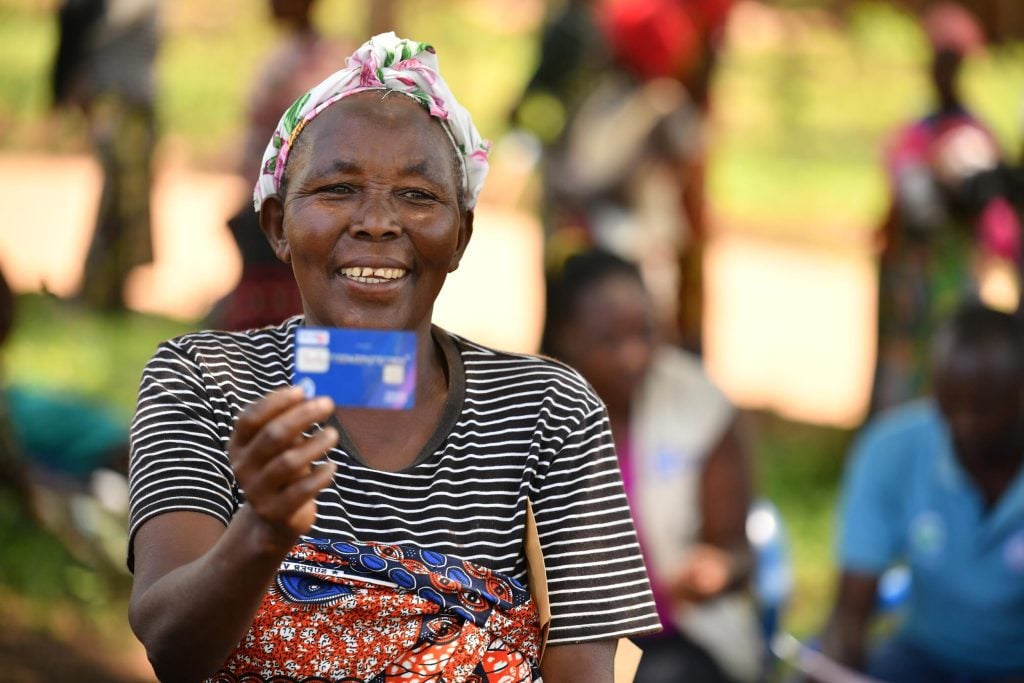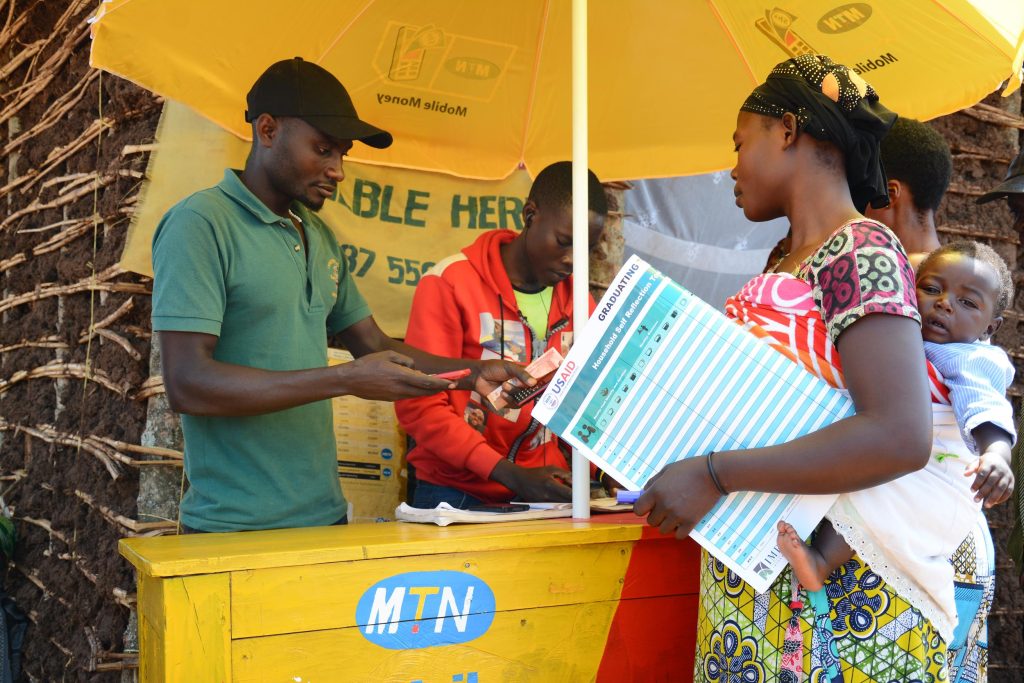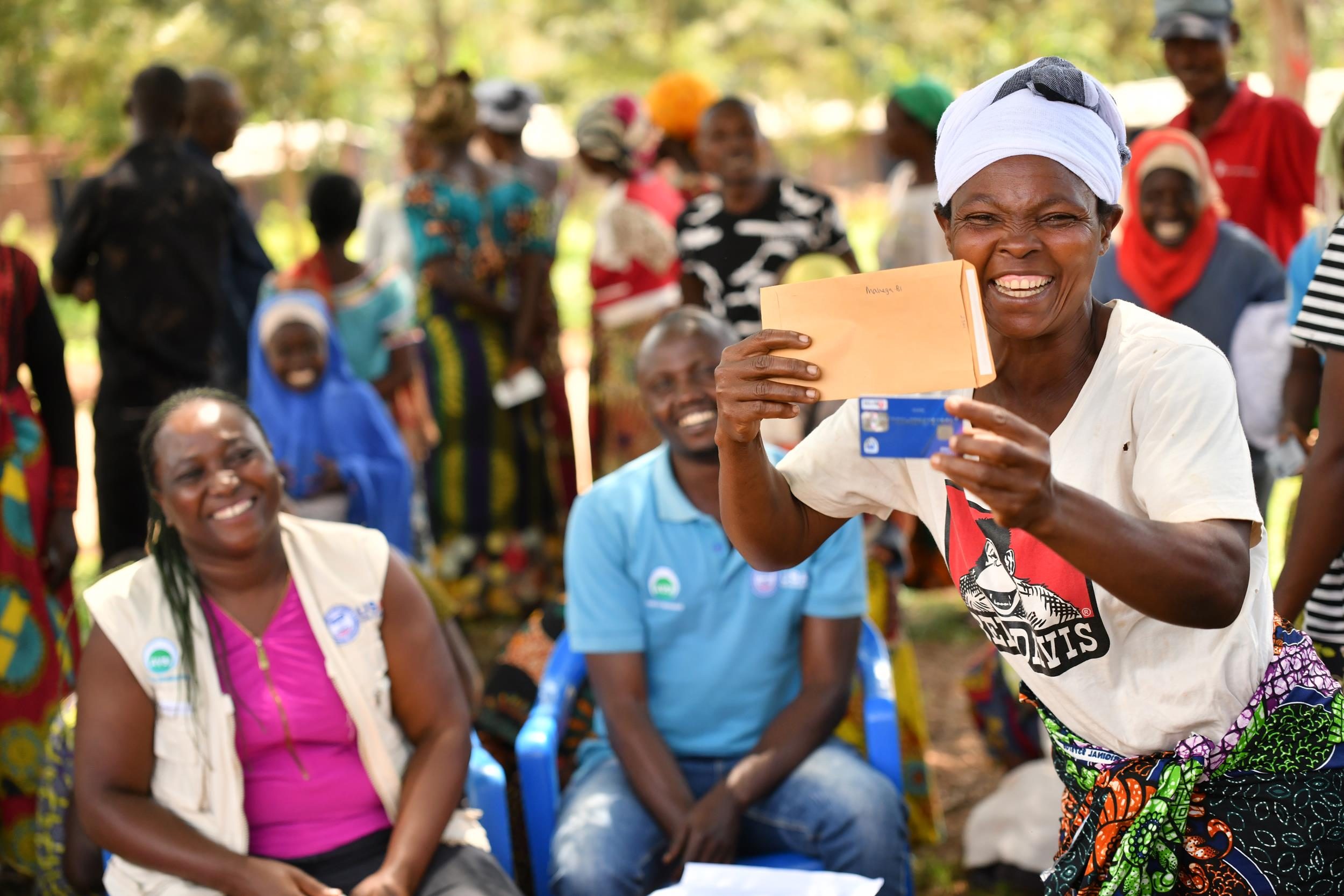When poor households, which rely mainly on daily income, are unable to meet their immediate basic needs, the first thing affected is food intake. Under the USAID Bureau for Humanitarian Assistance funded Graduating to Resilience Activity, implemented by AVSI in Uganda in a consortium with Trickle Up and American Institutes for Research targeted participant households are provided with a monthly consumption support using a cash modality delivered through mobile money and pre-paid cards.

The goal of consumption support is to provide households with a reliable source of support needed to meet food needs, particularly to increase or diversify food purchases for their households, without needing to sell productive assets to meet immediate needs. Targeted Activity participants are extremely poor and provision and access to a monthly consumption cash within the first year of the Activity is critical. Consumption support enables participants to fully engage in program activities and more proactively focus towards building their resilience.
In February 2022, the Activity started providing a monthly consumption support to each participant household based on the minimum food expenditure basket and food consumption gap.
Each Refugee household received 18,000 Uganda Shillings (USD 5) per household member while host households received 15,000 Uganda Shillings (USD 4) per household member. Here we feature consumption support delivered over three months to 6,955 (host-3552 and refugees 3,403) households amounting to UGX 2,317,080,711 (626,238.03 USD).
Following the delivery of consumption support, the Activity conducts a Post-Distribution Monitoring (PDM) survey a week post-delivery targeting all participants to identify if there were any issues or challenges related to the distribution. The PDM survey delivered by the Activity community-based trainers and coaches engages participants to provide feedback on their experiences with regard to access and utilization of the cash for consumption. The PDM also determines if participants experienced any changes with regard to their relationships with their neighbors and immediate community.

This blog features findings on specific variables including; safety, satisfaction, access, utilization and deeply focuses on the changes in relationships between participant households and their neighbors/ community following access of cash for consumption for February, March and April 2022.
Overall 97% of participants felt very satisfied with the consumption support process throughout the three months. With regard to safety, 99% participants felt safe while accessing the cash for consumption. 96.5% participants had accessed their cash for consumption. Overall 83% participants primarily used their cash for food in addition to saving and meeting medical and education needs.
With regard to relationships, 10% (676) of the participants reported both positive and negative changes in their relationships with neighbors. On a positive note, most households indicated that their relationships had improved evidenced through adulation, praise, and positive feedback from their neighbors. While this was very exciting for participants, it was received with mixed feelings. Participants wondered if their neighbors were trying to foster good relations with them in anticipation of asking for a favor. Refugee participants’ suspicions especially increased when incidences of their neighbors requesting to borrow money increased.
On a negative note, some participants reported experiencing a deterioration in their interaction and breakdown in relationships with their neighbors. Households experienced increased abuse, insults, and threats from their neighbors; being attacked and verbally assaulted; and an unwillingness of their neighbors to help or assist in times of need. The graph summaries changes in relationships.
Change in participants' relationships with neighbors
- Say good things 31%
- Ask to borrow money 26%
- Say rude things 30%
- Threaten 3%
- Attack or rob 1%
- Others 9%
Although changes in relationships were reported in both refugee and host communities, some of the most harmful effects appear to be more commonly experienced by refugee households. Households in the refugee communities reported more threats to their families than the host. Contextually, refugee households are more concentrated than host community which could increase the risk of conflict and insecurity. In addition, refugee participant households are less socially connected to their neighbors given that they are involuntarily allocated land upon their arrival in Uganda and yet some of them might have had pre-migration (home country) conflicts.
The Activity responded to these findings by intensifying community level sensitization with community leaders and other stakeholders to provide up-front comprehensive information on the selection of participants, the program components and especially the purpose of cash for consumption. Using the coaching intervention, participants were trained on conflict management and negotiation skills that enabled them better navigate relationships with their community.
Participants are continuously encouraged by the coaches and community-based trainers to access consumption support from safe mobile money points to minimize potential threats associated with travel, such as theft and robbery. Following the introduction of these modifications after the first consumption, participants have reported fewer negative instances as reported in consequent months.
While consumption support makes a significant contribution to meeting households’ food needs, the process of delivery and sensitization for participants and neighbors remains critical as these can exacerbate conflict in communities.
Given that poverty and food insecurity inhibit households from taking on more meaningful and longer-term livelihood strategies, consumption support provides an integral link, enabling participants to maintain or improve food intake without diverting productive assets.
The needs and benefits of consumption support greatly outweigh the negative impacts, however it imperative to recognize and understand potential consequences of large influxes of cash into communities especially as regards to potential changes in social networks and relationships.
